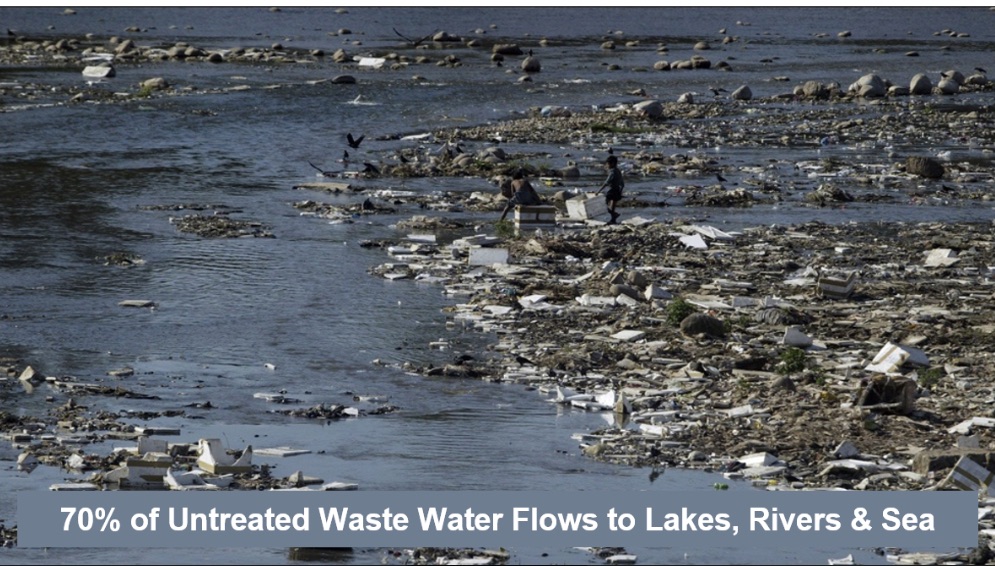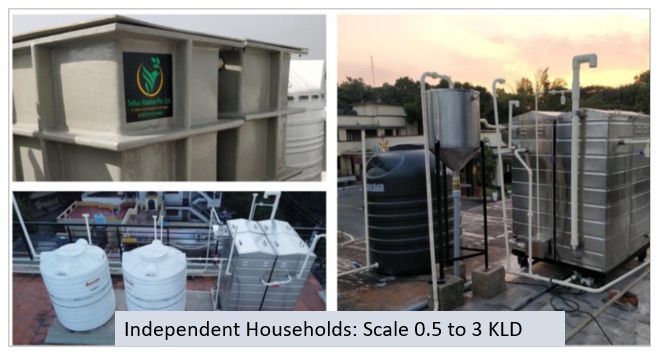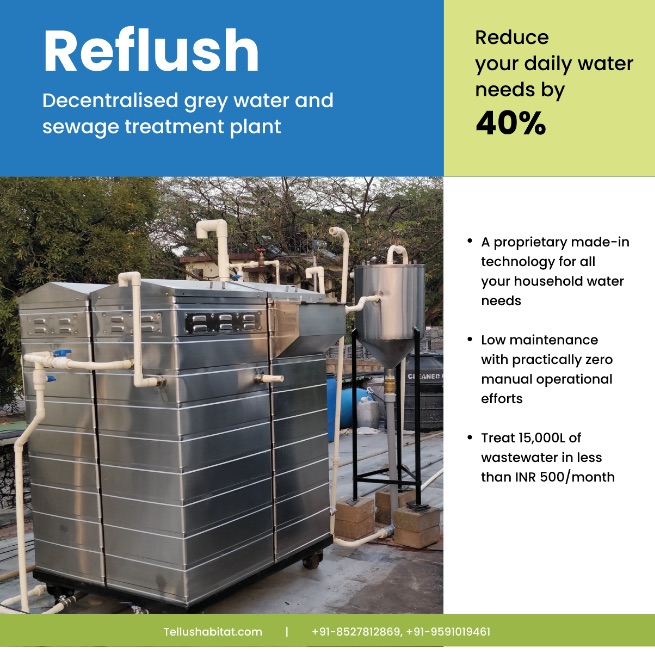Wastewater treatment and management in India
Author- Mrs (Dr.) Seema Sukhani Director, Tellus Habitat Pvt Ltd.
Wastewater management is a critical issue in India, where rapid urbanization, population growth, and industrialization have resulted in the generation of large quantities of wastewater. In this context, discharge of untreated wastewater into water bodies or groundwater contamination poses a significant threat to public health. Wastewater contains harmful pathogens, which can lead to waterborne diseases such as cholera, typhoid, and dysentery. Current estimates show about 70 percent of India’s water supply is already contaminated and nearly 1 million people die each year from water, sanitation and hygiene-related diseases which could also be reduced with access to safe water and sanitation. Some of the key challenges and needs for wastewater management in India include:

- Lack of infrastructure: to treat and dispose wastewater. Many cities and towns lack proper sewerage systems, and wastewater is often discharged directly into water bodies.
- Industrial pollution: Industrialization has led to the discharge of toxic chemicals and heavy metals into water bodies, posing a significant threat to human health and the environment.
- Agricultural runoff: Agricultural practices such as the use of pesticides and fertilizers result in significant runoff into water bodies, leading to water pollution and soil degradation.
But the most significant challenge is the mental stigma around wastewater. The lack of ownership and accountability from us as a community for handling our own waste is the fundamental issue. Wastewater management is a global issue, but can only be treated locally. Instead of transferring responsibility to the government and larger conglomerates, treatment at the point of discharge should be adopted and encouraged.

There are other factors associated with managing our wastewater properly apart from public safety and equitable water distribution. Our planet is drying out. Every day, more and more people are experiencing water stress. Humanity is facing a water crisis like never before and in a few years’ time, there simply won’t be enough water available for all of us. According to the estimates, around 40% of the world’s population will be living in seriously water-stressed areas by 2035. In the Indian context, our country is home to 18 percent of the world’s population, but only 4 percent of its water resources, making it one of the most water-stressed countries in the world. Nearly 600 million Indians face high to extreme water stress, with about 2 million people dying each year as a result of inadequate access to safe water. If we continue doing what we are doing today, there will simply not be enough water to quench the thirst of the world population.
RECYCLE WATER TODAY, HAVE DRINKABLE WATER TOMORROW
We must act quickly, swiftly and locally. Every drop of used water needs to be recycled.
Water is considered to be a cheap resource around the globe and wastewater is often thought disposable. One key differentiator is associated “waste” with water which automatically bring a different response in the society. Instead, we can refer it as “used” water which can be “re-used”. This change in terminology and mind-set is necessary to ensure long term sustenance and water security.
Efficient and compatible technology and water practises should be implemented across habitable spaces to ensure that “used” water is treated before it is discharged into water bodies or re-used for domestic or commercial applications. There are several technologies available for wastewater treatment, each with its unique benefits and drawbacks. The most common wastewater treatment technologies are biological in nature, few of the most popular ones are Activated Sludge Process, Moving Bed Biofilm Reactors, Sequencing Batch Reactors, Oxidation Ponds etc.

There are two major outputs from a wastewater treatment system – the treated water and sludge. Both of these can be used in a variety of ways in both rural and urban areas. Treated water can be used for non-potable applications like flushing, gardening, irrigation, industrial processes and recharging ground water. In rural areas treated water can be completely used in agriculture and recharging water bodies. This can help to conserve freshwater resources and reduce the demand for water. Treated water can also be used for aquaculture or fish farming. The nutrients in the treated water can provide a food source for fish, while the fish can help to remove nutrients from the water.
The sludge produced during the wastewater treatment process can also be used in a variety of ways. In rural areas, sludge can be used as fertilizer for agriculture, while in urban areas, it can be used as a soil amendment for landscaping or as a source of energy. Some wastewater treatment plants even use sludge as a source of biogas, which can be used to generate electricity or heat.
The selection of appropriate “used” water treatment technology depends on several factors such as the nature and concentration of contaminants, the volume of wastewater to be treated, the desired quality of the treated water and the re-use application of treated water. Most of these technologies requires extensive energy, trained manpower and are not economical. They are also not suitable at lower scales (<75 KLD), which essentially means one family (0.5KLD) to group of 150 families (75KLD) do not have an economical, feasible “used” water treatment technology. A large contributor of “used” water has been ignored by the technology giants of this space.
IT TAKES A LOT OF BLUE TO STAY GREEN
Tellus Habitat was founded with the vision to bridge the gap of the under-served market and be a one stop water solution for the world’s increasing water needs and depleting resources. We offer technologically advanced, compact, portable affordable and automated systems of scales ranging from a nuclear family to a community of 1000 families for urban areas. We also offer passive nature based systems (NBS) for rural areas that treat water with the help of algae and consume negligible electricity. By recycling at the source, we can solve the worldwide water crisis.
For more details, visit:
Contact email:

